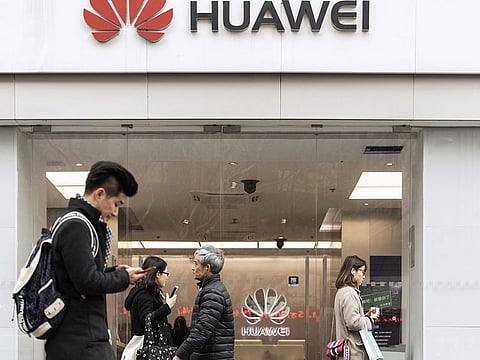Huawei considers app store fees as it surpasses Apple in China
The company has been discussing a fee of about 20% with developers

Huawei Technologies Co. is considering taking a cut of in-app purchases on its Harmony mobile operating system, underscoring its growing confidence in competing with Apple Inc. in the world's largest smartphone arena.
The Shenzhen-based company is weighing a commission lower than the typical 30% cut that Apple and Alphabet Inc.'s Google take for payments made via their mobile stores for things like apps, games, movies and music subscriptions, according to people familiar with the matter. Huawei has kept Harmony OS fee-free until now, as an enticement to bring developers and publishers on board.
For games in particular, which account for the majority of mobile app store revenue, Huawei has been discussing a fee of about 20% with developers, the people said. They asked not to be identified as the information is private. Rival Android store operators in China, such as Xiaomi Corp., charge as much as 50% on in-game purchases. Huawei has not yet made a final decision and its plans could still change, according to the people.
Huawei's imminent move suggests the Chinese tech conglomerate feels it has grown its user and developer base to the point where it can begin collecting rent. The company shifted to its in-house Harmony OS after US sanctions cut it off from working with Google, the proprietor of Android.
A company spokesperson did not respond to a request for comment.
The envisioned commissions would still place Huawei's 4-year-old Harmony ecosystem below market competitors. The company has to convince both users and app makers to embrace its third option, after Apple's iPhone software and Google's Android, though it has made strong progress over the past year with its return to prominence in China's premium market.
Huawei has seen increased demand for its 5G smartphones after it released the Mate 60 Pro with an advanced China-made chip last year. Its net profit rose 564% in the first quarter as it took market share from Apple and others. Its Harmony OS also overtook iOS in terms of market share in China in the January-March period, according to Counterpoint Research.
Sign up for the Daily Briefing
Get the latest news and updates straight to your inbox



